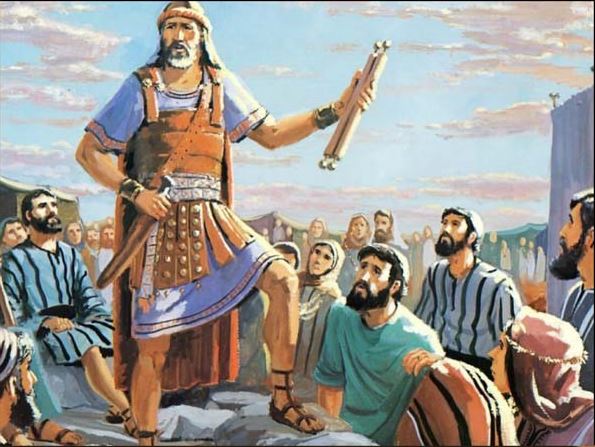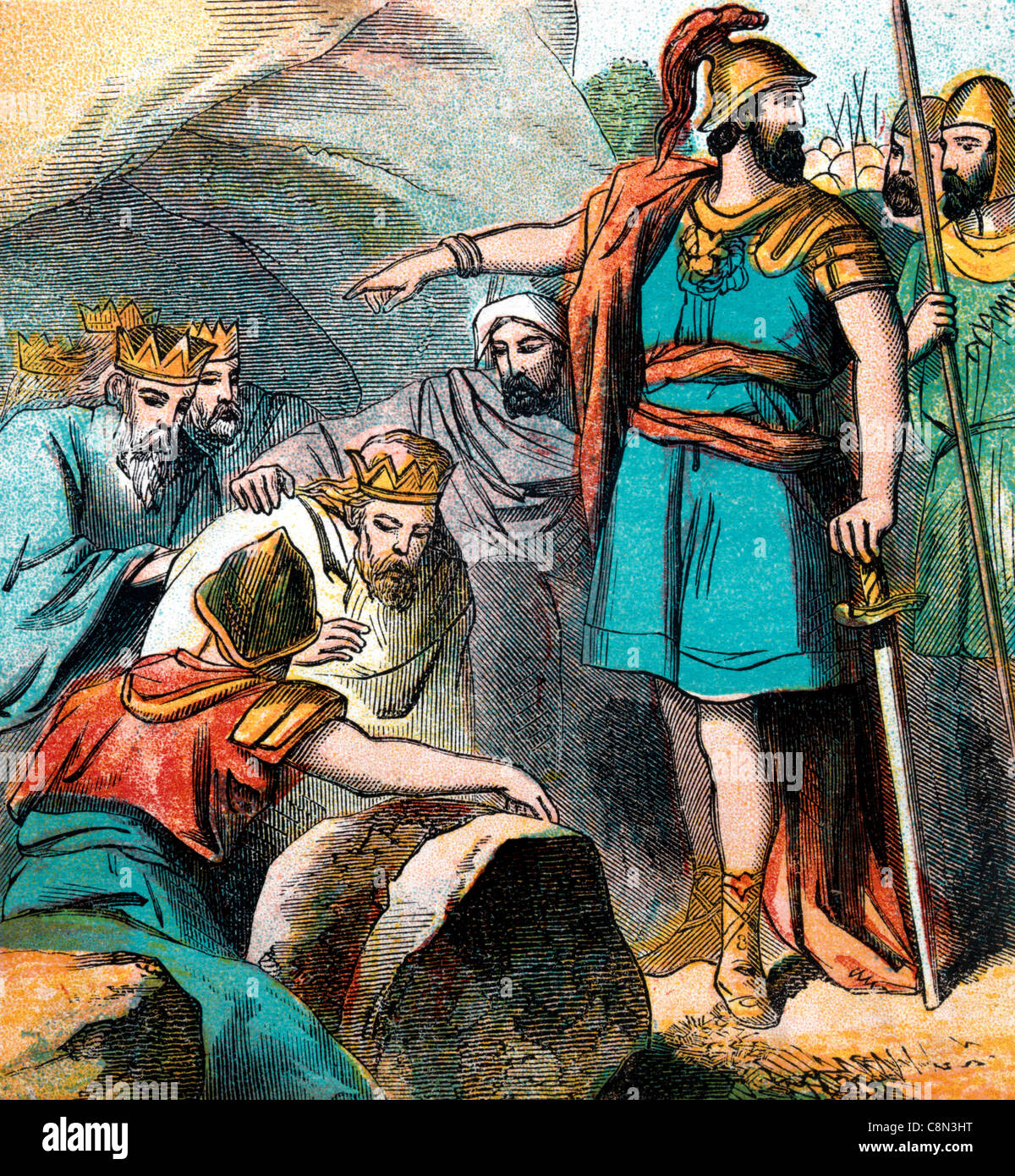Have you ever stopped to think about the incredible variety of people living all over our planet? There are so many distinct communities, each with their own ways of life, their own languages, and their own beliefs. It's truly something amazing to consider, and in some respects, it highlights how much there is to learn about the world around us.
For many years, some groups have been working to understand these communities more deeply, especially those where certain spiritual messages haven't really reached a lot of people. One such effort, you know, is called the Joshua Project. It's a way to get a clearer picture of who these groups are and where they live, providing information that helps others connect with them, perhaps even share ideas.
This initiative gathers facts and figures, making them available to anyone interested in learning more about the world's diverse populations. It's like building a map, in a way, that shows where these communities are located and gives a sense of how many people are in them, which can be quite helpful for different kinds of outreach. So, let's take a closer look at what the Joshua Project is all about and how it works.
- The Bostonian Hotel Boston
- Mishawaka Amphitheatre
- Glc Live At 20 Monroe
- Villas Tacos Los Angeles
- Willow Creek Theater
Table of Contents
- What is the Joshua Project, really?
- How Does Joshua Project Share Information?
- Who Started the Joshua Project?
- Why Does Joshua Project Matter?
- A Look at Joshua Project's Data Details
What is the Joshua Project, really?
The Joshua Project, in its simplest form, is a group that does a lot of looking into who lives where across the globe. Their main aim, you know, is to pinpoint those people groups that have very few individuals who consider themselves followers of Jesus. It's a kind of information-gathering effort, truly, meant to help others understand where there might be a need for more engagement or sharing of spiritual ideas.
They collect a lot of facts and figures, and this information then helps Christian mission groups plan their work. It's about giving a clearer picture of where people might not have heard certain religious messages, or where there are very few people who share those specific beliefs. So, it's a way to shine a light on communities that might otherwise be overlooked, you know, in terms of religious outreach.
The group also tracks how much effort has been put into sharing the Christian message with these groups. It's a kind of ongoing record, really, of where things stand. They keep an eye on what's happening among thousands of different people groups, making sure their information is as up-to-date as possible. This means, basically, that the Joshua Project provides a kind of scorecard, if you will, for how far the message has spread.
Understanding Unreached Groups with Joshua Project
When the Joshua Project talks about "unreached people groups," they are referring to communities where a specific religious message, particularly evangelical Christianity, has not yet found many followers. It's about identifying places where very few people have had a chance to hear or accept this particular faith. This helps, in a way, to focus efforts where they might be most needed, from a missionary perspective.
They put together lists and maps, which show where these groups are located all over the world. You can, for instance, see global lists of these communities, or even look at specific countries or regions. This allows people to get a visual sense of the distribution of these groups, and that, you know, can be pretty helpful for those planning outreach work.
The information also includes details about the number of people in these groups and how many of them might already be followers of Christianity. It’s about providing a clear picture of the spiritual landscape, so to speak. This data helps, essentially, to estimate where more people might be needed to start new churches or share their beliefs. It’s a pretty detailed look at demographics, really, through a specific lens.
How Joshua Project Tracks Progress
The Joshua Project has a way of estimating how far along the process of church planting is within a particular group of people. They call this their "progress scale." It's a way of putting a number, or a level, on how much activity there has been in terms of establishing Christian communities. This scale, you know, gives a general idea of the level of Christian presence within a community, a region, or even a language group.
This scale is figured out by looking at a couple of key numbers. One is the percentage of people in a group who identify as evangelical Christians. The other is the percentage who simply say they are Christian, regardless of their specific denomination. By combining these two figures, they get a sense of how much progress has been made, according to their own system. It's a straightforward way, basically, to measure the spread of their faith.
So, a group with a very low percentage of evangelical Christians would be considered less "reached" on this scale. Conversely, a group with a higher percentage would show more "progress." It's a tool, essentially, for those involved in Christian missions to see where their efforts might be having an effect, or where more work might be needed. This system, you know, helps them keep track of their goals and see where they stand.
How Does Joshua Project Share Information?
The Joshua Project makes its collected information available in many different ways, so it's quite accessible, really. They have a website, for instance, where you can find a lot of statistics and details about people groups around the world. It’s a pretty comprehensive collection of facts, which is handy for anyone doing research or planning activities.
You can search for information by country, by language, or by religious group. This means, basically, that if you're interested in a specific part of the world, or a certain kind of community, you can probably find what you're looking for there. They even provide maps and charts, which can help make the data easier to understand. It's about putting the information out there, you know, in a way that people can actually use.
They also offer various resources that go beyond just lists and numbers. There are presentations, videos, and articles that help explain the concepts and the work they do. This makes it, you know, more than just a database; it becomes a place where people can learn and get ideas for their own efforts. It’s a pretty broad approach to sharing what they know.
Joshua Project's Daily Prayer Resources
A big part of what the Joshua Project does involves encouraging people to pray for those communities that they identify as "unreached." They offer a daily resource for this purpose, making it very easy for someone to get involved. You can get a daily reminder, for instance, about a specific people group through a mobile application, or maybe through an email subscription. It's a very direct way, you know, to connect people with the mission.
They also have a podcast, which provides a bit more detail about a different unreached group each day. And if you prefer, there's even a web widget you can put on your own website, which will display the daily prayer focus. This means, essentially, that they try to meet people where they are, making it simple to participate in this prayer effort. It’s about creating a consistent rhythm of remembrance, truly, for these communities.
This daily prayer focus includes communities from all over the world, like, for instance, an unreached people in Eurasia each day of the year. It's a way to keep these groups in people's thoughts and prayers, consistently. This continuous focus, you know, is a central part of their strategy, aiming to generate widespread support for their cause.
Joshua Project's Global Data and Maps
The Joshua Project provides a huge collection of global data, which is quite detailed, really. You can find interactive lists of people groups, and also create your own custom lists based on what you are looking for. This means, basically, that you have a lot of control over how you view the information, which can be pretty useful for specific projects or interests.
Their global search dashboard lets you look at various categories, like countries, regions, languages, and even religions. You can also see their "progress levels" for different groups, which gives you a quick idea of where things stand. This makes it, you know, a very versatile tool for anyone trying to understand the spread of Christianity around the world.
Beyond just lists, they offer maps, infographics, and presentations that help visualize the data. This means, essentially, that the information is not just presented as raw numbers but in ways that are easier to grasp and share. They also have mobile applications and an API for developers, which makes their data widely available for different uses. It's a pretty comprehensive approach, you know, to making facts accessible.
Who Started the Joshua Project?
The Joshua Project actually began back in 1995, as a part of a larger initiative called the AD2000 and Beyond Movement. This was a worldwide effort focused on evangelism, and it had some very important people from different countries involved in getting it going. So, it wasn't just one person's idea, but a collaborative effort, which is pretty interesting, really.
There were four key founders, each from a different part of the world: Argentina, Malaysia, China, and India. This diverse group helped shape the early vision of the Joshua Project. But, you know, a big influence in getting the Joshua Project off the ground was a man named Luis Bush, who was from Argentina. He played a central role in its creation and direction.
So, the organization has roots in a broader global movement, with contributions from various individuals and perspectives. This history, essentially, shows that it was born out of a shared desire to better understand and engage with people groups around the world, specifically in the context of Christian missions. It's a pretty clear lineage, really, for such a widespread initiative.
Why Does Joshua Project Matter?
The Joshua Project matters because it provides a really detailed look at the world's diverse people groups, especially those who have very few followers of evangelical Christianity. It helps Christian organizations coordinate their work, making sure they are focusing their efforts where they believe they are most needed. This means, basically, that it helps to make missionary work more organized and, perhaps, more effective.
It maintains a vast amount of ethnological data, which is basically information about different ethnic groups. This data supports Christian missions by identifying where there are communities that might not have been exposed to their message. So, it's a tool, you know, that helps people understand the cultural and religious landscape of the world, from a very specific viewpoint.
The project also tracks the efforts made to share the Christian message among thousands of people groups. This tracking helps them see where progress is being made and where more work might be required. It’s about keeping a pulse on the global spread of their faith, truly, and that can be very important for those dedicated to this kind of outreach.
A Look at Joshua Project's Data Details
The Joshua Project is essentially a website that holds a lot of information and statistics about people groups from all over the world. You can, for instance, look at specific countries and the communities within them. For North America, they list 38 countries and over 1,500 people groups, which is quite a lot of detail, really.
This information can be sorted in different ways, like by population size, by how "unreached" a group is considered, or by the number of Christian followers they have. This means, basically, that you can arrange the data to see what matters most to your particular interest. It’s about making the information flexible and useful, which is pretty helpful for researchers or those planning specific activities.
For places like Malaysia, for example, they provide maps, charts, and statistics on ethnic people groups, their languages, and their religions. This data can be sorted and even downloaded, which means you can take it offline and work with it yourself. So, it’s not just a viewing platform; it’s a place where you can actually get the raw facts to use in your own way.
They also provide an estimate of how many "pioneer workers" might be needed to start new churches among unreached groups in various countries. This is a very practical piece of information for missionary organizations. It gives them a tangible goal, you know, a number to work towards when planning their staffing and outreach efforts.
The Joshua Project also keeps track of people groups that are considered "minimally reached," based on their five-level progress scale. This helps to identify communities where there has been some, but not a lot, of Christian presence. It’s a way to fine-tune their understanding of where the message has landed, and where it still needs more attention. This focus, truly, helps them refine their strategies.
The project offers a very comprehensive database of people groups worldwide. For example, they might describe a community's environment, like their farmland being around 900 meters above sea level, or their main crops being rice and robusta coffee. They might even tell you about the approximate size of their rice fields, like 5,000 hectares harvested each year. This means, essentially, that they try to give a full picture of the communities they track, which can be quite helpful for understanding their context.
All the data they collect, whether it's about people groups, languages, or specific places, is made available through their search dashboard. You can create lists, look at frontier countries, or explore different regions. They even offer multilingual prayer cards and guides, which are very practical resources for those doing local church work. It’s about providing a wide array of tools, you know, to support their mission.
They also have systems for managing subscriptions to their lists, and they are committed to privacy. So, when you sign up for their updates, you are agreeing to their terms, but they also assure you that your personal details are handled with care. This means, basically, that they try to build trust with their users, which is pretty important for an organization that collects and shares so much information.
In summary, the Joshua Project is a research initiative that identifies ethnic people groups with few Christian followers, offers daily prayer resources, provides global lists, maps, and statistics, estimates pioneer worker needs, tracks evangelical Christian presence, and maintains ethnologic data to support Christian missions. It offers various digital resources like mobile apps, podcasts, and a comprehensive website with sortable data, and originated from the AD2000 and Beyond Movement in 1995.
Related Resources:



Detail Author:
- Name : Garnet Cole MD
- Username : dhodkiewicz
- Email : darien70@dickinson.com
- Birthdate : 1970-01-21
- Address : 9302 Schowalter Forest Araceliberg, AL 34842-8847
- Phone : 1-380-521-6966
- Company : Langosh, Dibbert and Nitzsche
- Job : Licensing Examiner and Inspector
- Bio : Ab facere neque libero alias. Dolorum sed qui rerum perspiciatis. Sit molestiae aut nostrum et. Dolorum quam quo alias ducimus.
Socials
tiktok:
- url : https://tiktok.com/@della_abshire
- username : della_abshire
- bio : Libero ut id enim ipsam.
- followers : 4287
- following : 1296
facebook:
- url : https://facebook.com/dabshire
- username : dabshire
- bio : Exercitationem est aut corrupti expedita quae.
- followers : 6306
- following : 480